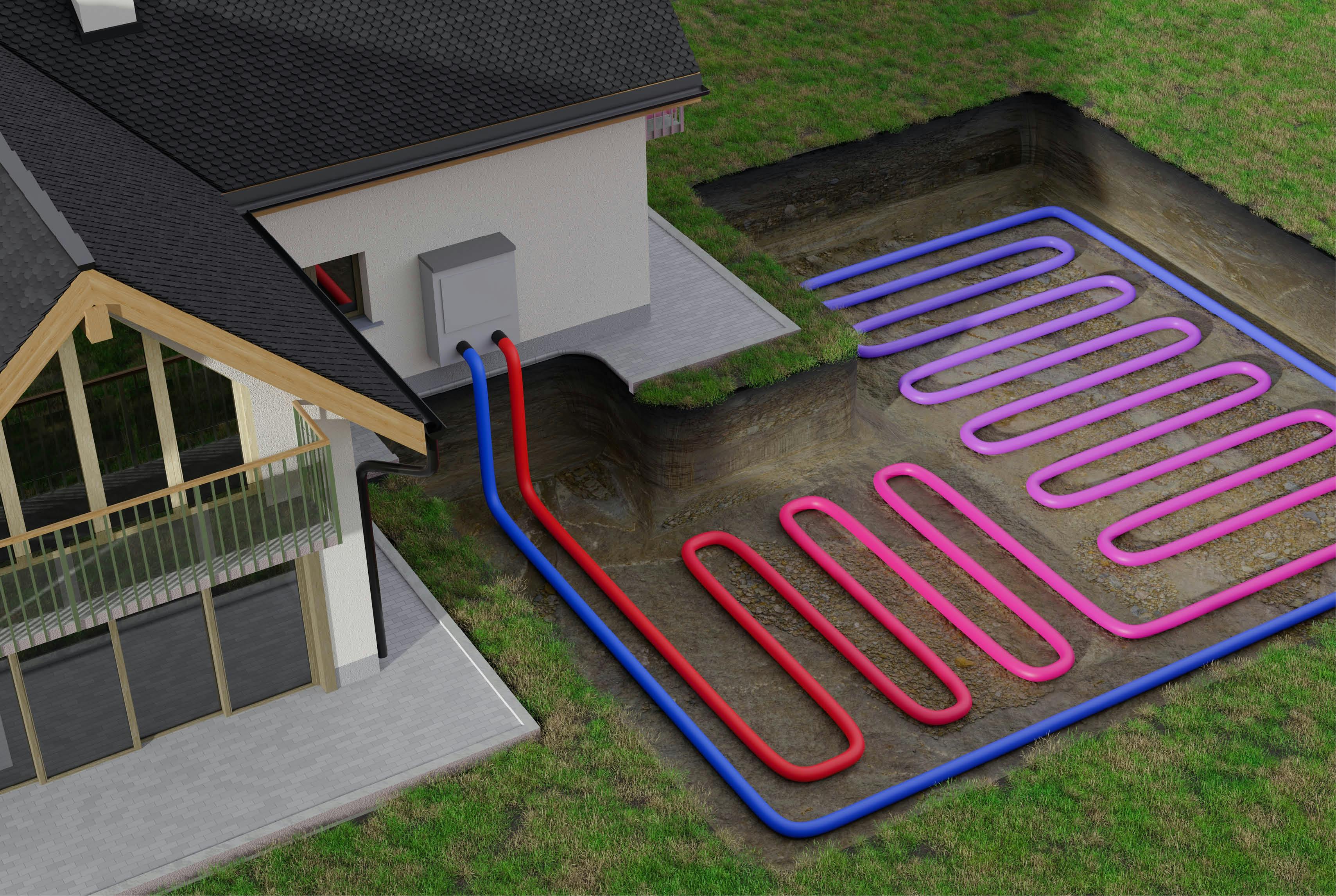Saving redundant gas boilers from the scrap heap: Aira meets The Salvage Sister
Today, residential heating is Europe’s third-largest emitter of CO₂ and is responsible for 16% of the UK’s CO₂ emissions…
Read more
Switching to a heat pump can make some significant improvements to your home, from reduced energy bills to fewer carbon emissions produced. Heat pumps are the way forward when it comes to a greener home.
If you’re thinking of making the switch but aren’t sure which type of heat pump will suit your home and needs best, keep reading as we’ll explore the most popular heat pump types and their benefits.
Heat pumps are a more environmentally friendly way to heat and cool your home as they use a small amount of energy to extract heat from the air, ground or water, which is then converted by a heat pump to provide heating, cooling and hot water.
Heat pumps have been around for many years but recently gained popularity after energy prices soared across the world.
There are many different types of heat pumps, and the one you choose will depend on factors such as the location, surrounding area and the size of your home. The most common types of heat pumps are:
Air source heat pumps use the thermal energy from the air outside your home to provide heating and hot water. This type of heat pump is the most popular as it can be installed outside the home. Despite using the air, these heat pumps will also operate in colder climates because although the air outside is cooler, there is still enough thermal energy in the air available to heat your home. It is vital to understand the pros and cons of an air source heat pump as well as the costs of an air source heat pump to decide whether one is right for you.

There are two main types of air source heat pumps:
Air to water heat pumps, like our Aira Heat Pump, also use the air outside and draw it into the heat pump, which passes through an evaporator and is absorbed by a liquid refrigerant to turn into a gas and hold the energy. This energy then enters a condenser, turning it into a liquid and releasing it into the house’s circuit to warm your home and provide hot water.
Air to air heat pumps are another variation of the air source heat pumps that use the air from outside to transfer it to the air inside your home. This is done through a series of fan units and can increase the temperature of the air in each room. Air to air heat pumps are only able to heat or cool your home – they don’t provide hot water like air to water heat pumps do.
Ground source heat pumps, or geothermal heat pumps as they’re sometimes also known, extract heat from a mixture of water and antifreeze that circulates through pipes buried in the ground, either by a vertical or horizontal loop, to transfer to your home.
As this system needs to go in the ground, you’ll need to have plenty of land for the installation. Once installed, the heat pump is unnoticeable. These heat pumps offer an efficient way of heating the home as the temperature in the ground is constant. However, it is the more expensive option due to the complicated excavation process and underground piping installation.
Water source heat pumps use a system embedded in a water source, such as a lake, river or well, to extract energy. Like ground source heat pumps, this system provides one of the most reliable sources of hot water and heating thanks to the consistent temperature of the water outside and, as water is a very good energy carrier, is highly efficient.
They also are unnoticeable once installed and use a series of pipes to circulate the water, absorbing or rejecting heat, depending on the season and the desired indoor temperature.

The best choice of heat pump for your home will depend on your specific circumstances, the location, climate and size of your home.
If you’re in a moderate to cold climate with no access to a water source, an air source heat pump may be a suitable and cost-effective option and is ideal due to its easier installation process and overall efficiency.
If you’re in any climate and have sufficient land space, a ground source heat pump can offer high efficiency and long-term savings, however it is a more complicated installation process and a more expensive option. If you’re near a water source and have permission to use it, a water source heat pump can be an efficient choice, but again the installation is more complicated.
It’s recommended to consult with a specialist who can assess your home and provide tailored recommendations based on your needs and budget.
At Aira, our air to water heat pump solutions can be specifically designed for your home by one of our experts to bring you the efficiency and ideal heating and cooling system for your needs. All our heat pumps can also be installed and up and running in less than 30 days, so before you know it, your home will be the perfect temperature all year round. If you’re considering replacing your current heating system with a heat pump, find out more today.